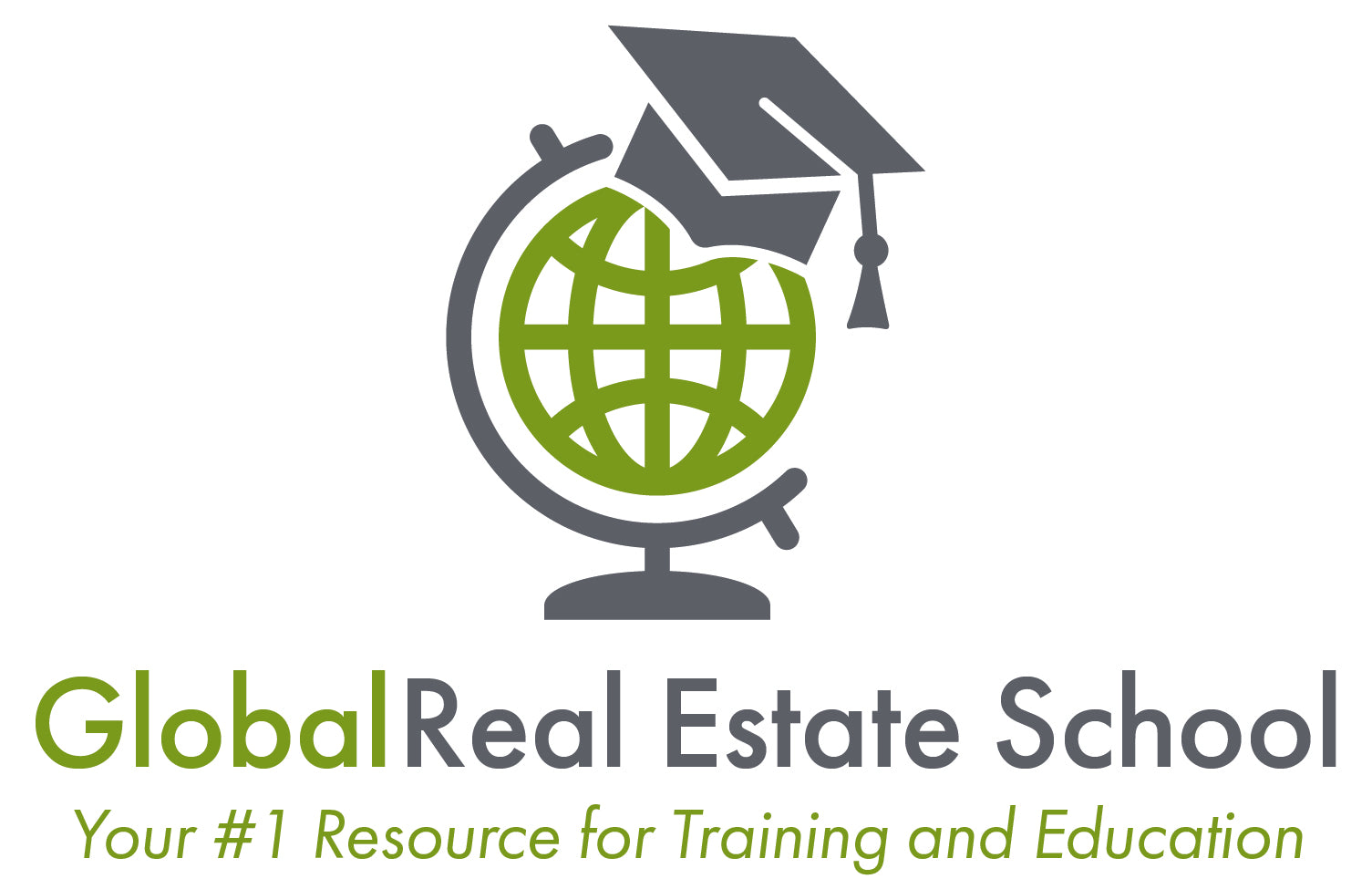Digital vs Classroom Real Estate School: Which Works Best?}
What Courses Are Offered at a Real Estate College? A Total Guide for Aspiring Brokers
Aspiring property agents have a diverse selection of programs available to improve their knowledge and skills. These offerings vary from foundational classes in realty principles to specialized training in areas like residential or commercial property administration and industrial property. Recognizing the different instructional paths can be vital for success. What necessary subjects and approaches will these training courses cover, and just how might they shape an agent's profession?
Comprehending the Basics: Real Estate Principles
The structure of actual estate knowledge depends on understanding its principles. These principles encompass essential principles that govern the buying, marketing, and administration of residential or commercial properties. Key subjects include property possession, land use, and the various legal rights related to ownership. Recognizing the distinctions between domestic, commercial, and industrial residential or commercial properties is necessary, as each classification has one-of-a-kind market dynamics.
Additionally, pupils find out about market analysis, which includes assessing property worths and patterns to make informed choices (Real Estate School). Realty principles also cover the importance of agreements and the legal framework that supports property deals. Familiarity with funding choices, such as finances and home loans, is crucial for guiding the monetary aspects of real estate. On the whole, a solid understanding of these concepts gears up ambitious agents with the fundamental understanding essential to be successful in the affordable property market, paving the method for further specialized training and licensing

Licensing Needs and Examination Preparation
Aspiring realty representatives should browse certain licensing needs to exercise lawfully in their respective states. These needs generally consist of completing a designated variety of hours in pre-licensing education, which covers important subjects such as realty legislation, ethics, and home monitoring. Prospects must also pass a state evaluation that evaluates their expertise and understanding of these topics.
Test prep work is crucial for success. Numerous property institutions use test preparation training courses that give technique inquiries, study guides, and review sessions. These sources aid candidates acquaint themselves with the exam format and web content. Furthermore, signing up with study hall or using on the internet platforms can boost finding out via collective evaluation and conversation.
Once the test is passed, representatives need to request their certificate with the state's actual estate commission, frequently come with by background checks and fees. Fulfilling these licensing demands guarantees that agents are geared up to serve clients properly and ethically in the realty market.
Specialized Courses: Residential Property Administration
Understanding the complexities of property monitoring is essential for genuine estate specialists looking for to improve their proficiency in this customized field. Residential or commercial property monitoring courses supply agents with useful insights right into the day-to-day procedures of managing household and industrial buildings. These training courses commonly cover key topics such as occupant connections, lease contracts, and residential or commercial property maintenance.
In addition, aiming building managers discover economic monitoring, including budgeting and rent collection approaches, in addition to lawful obligations associated with lessee legal rights and home guidelines.
Courses may also discover advertising and marketing approaches for bring in renters and devices for residential or commercial property monitoring software that simplify operations. By finishing specialized property monitoring training courses, realty professionals can much better equip themselves to take care of the challenges of handling residential properties properly, eventually resulting in boosted customer complete satisfaction and company development. This expertise is important for those intending to master the competitive property market.
Commercial Property: A Different Point of view
Industrial property operates under one-of-a-kind market dynamics that identify it from houses. Understanding investment approaches particular to this sector is important for success, as is acknowledging the value of networking possibilities available to specialists. These elements together form a comprehensive technique to going across the intricacies of industrial realty.
Special Market Dynamics

Investment Methods Described
Numerous financial investment methods exist within the domain of industrial property, each customized to satisfy certain monetary goals and market problems. One usual technique is value-add investing, where capitalists obtain underperforming buildings, enhance their worth via restorations, and consequently enhance rental revenue. An additional strategy is core investing, focusing on supported, high-grade possessions in prime places that supply constant capital. Furthermore, opportunistic investing includes higher danger, targeting homes needing considerable redevelopment or in arising markets. Property investment company (REITs) offer a more passive strategy, allowing individuals to buy a varied portfolio of business residential or commercial properties. Crowdfunding platforms have actually arised, making it possible for little financiers to partake in bigger business bargains, equalizing accessibility to the business genuine estate market.
Networking Opportunities Available
In the domain name of property investing, click site building a durable specialist network can greatly enhance chances for success. Networking chances are plentiful at actual estate colleges, where ambitious agents can connect with market experts, teachers, and fellow pupils. Workshops, seminars, and visitor lectures frequently include skilled representatives and brokers who share understandings and experiences, giving indispensable calls. Many schools also assist in neighborhood meetups and networking events, motivating trainees to involve with the more comprehensive genuine estate community. Additionally, on-line systems and discussion forums connected with these programs permit for ongoing communication and collaboration. By leveraging these opportunities, students can foster relationships that may bring about mentorship, partnerships, and possible work positionings, inevitably helping in their expert advancement within the competitive industrial actual estate sector.

Realty Investment Approaches
Genuine estate investment techniques differ significantly, including methods such as rental property financial investments, turning houses, and engaging with Property Financial Investment Depends On (REITs) Each approach provides unique chances and threats that investors need to thoroughly take into consideration. Understanding these choices is crucial for anybody seeking to develop an effective realty profile.
Rental Property Investments
Several capitalists discover rental building financial investments to be a compelling strategy for constructing riches and creating easy revenue. This strategy entails purchasing business or residential buildings to lease to occupants, guaranteeing a consistent capital. Successful rental residential property financial investments call for detailed marketing research, assessing residential or commercial property worths, and comprehending regional rental need. Investors often benefit from tax benefits, such as devaluation and home mortgage rate of interest reductions. In addition, home administration abilities are crucial for maintaining occupant partnerships and making sure prompt rental fee collection. Lasting appreciation of building values can better boost a financier's profile. On the whole, rental residential or commercial property financial investments can offer a steady income source and add to economic protection, making them an appealing option for lots of in the realty market.
Flipping Homes Techniques
Flipping houses has emerged as a prominent approach for real estate investors looking for fast returns on their investments. This technique includes buying undervalued properties, making required renovations, and marketing them at a greater price. Successful home flippers typically carry out detailed market research study to identify promising communities and residential properties with capacity for gratitude. They frequently focus on aesthetic upgrades, such as cooking area and bathroom remodels, to enhance appeal without spending beyond your means - Real Estate School. In addition, understanding funding options and handling budgets are vital for making best use of profits. Time is important in this approach, as prolonged restorations can deteriorate profit margins. Ultimately, flipping residences requires a mix of market knowledge, improvement abilities, and financial acumen to be effective in a competitive property landscape
REITs and Diversity
Although straight residential property investment can produce high returns, Real Estate Investment Counts On (REITs) use an engaging alternative that allows investors to diversify their portfolios without the complexities of handling physical residential or commercial properties. REITs are firms that own, operate, or finance income-producing great site real estate throughout various industries, consisting of residential, industrial, and commercial properties. By purchasing REITs, individuals can gain exposure to realty markets without the demand for considerable funding or direct management duties. This financial investment lorry additionally gives liquidity, as shares can be quickly dealt on supply exchanges. Furthermore, REITs frequently pay rewards, using a routine earnings stream. Overall, including REITs into a profile can boost diversity and reduce threats related to conventional building financial investments.
Continuing Education And Learning and Expert Advancement
As the property market advances, experts have to take part in continuing education and professional growth to remain competitive and notified. This ongoing learning is crucial for adapting to modifications in laws, innovation, and market trends. Realty schools use different courses created to enhance skills and understanding, consisting of sophisticated settlement techniques, property administration, and marketing methods.
Many states need accredited agents to complete a set variety of continuing education and learning hours to maintain their licenses. These programs often cover essential subjects such as ethics, fair housing policies, and threat administration.
Furthermore, market workshops and workshops give networking chances, permitting representatives to get in touch with peers and industry Visit This Link leaders. By taking part in these instructional programs, realty professionals can guarantee they remain efficient and receptive to customer demands, eventually causing career development and success in a vibrant market.
Often Asked Concerns
What Is the Regular Duration of Property Courses?
The normal period of real estate courses differs, generally varying from a couple of weeks to a number of months. Aspects influencing this duration include course web content, shipment approach, and state needs, influencing hopeful agents' academic timelines.
Are Online Courses Available genuine Estate Education And Learning?
Yes, various on-line training courses are readily available genuine estate education. These programs supply adaptability and access, enabling individuals to learn at their very own speed while covering important subjects needed for acquiring realty licenses and knowledge.
Exactly How Much Do Property Courses Generally Expense?
Realty training courses normally range from $200 to $1,500, depending upon the establishment and program length. Additional fees for materials, exams, and state licensing might also apply, contributing to the total cost of education.
Can I Take Real Estate Courses Part-Time?
Yes, people can take property courses part-time. Lots of universities supply adaptable scheduling choices, allowing hopeful agents to balance their researches with various other dedications, making it easily accessible for those with hectic way of livings.
What Professions Can I Seek After Finishing Property Courses?

These offerings vary from fundamental classes in actual estate concepts to specialized training in locations like residential property administration and commercial actual estate. Actual estate concepts also cover the significance of contracts and the lawful framework that supports real estate purchases. While many actual estate experts focus on residential markets, the characteristics of industrial genuine estate existing one-of-a-kind difficulties and opportunities that require a various method. Actual estate financial investment methods vary substantially, encompassing approaches such as rental building investments, turning homes, and involving with Real Estate Financial Investment Counts On (REITs) Straight home investment can yield high returns, Real Estate Investment Trust Funds (REITs) use an engaging choice that permits financiers to expand their portfolios without the intricacies of handling physical residential or commercial properties.